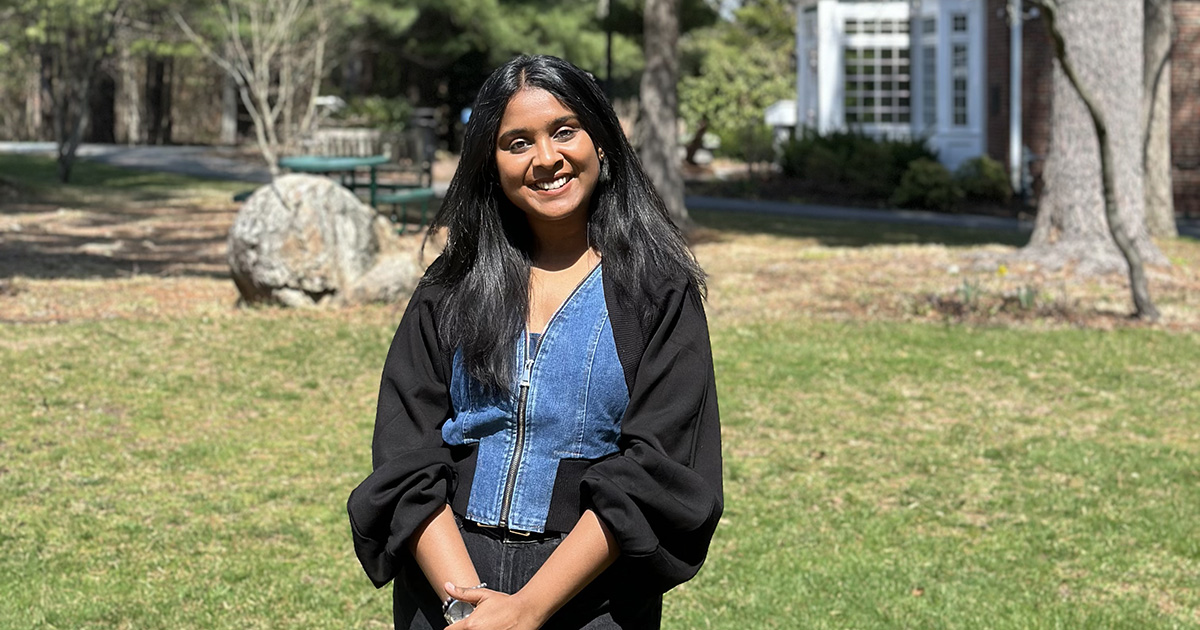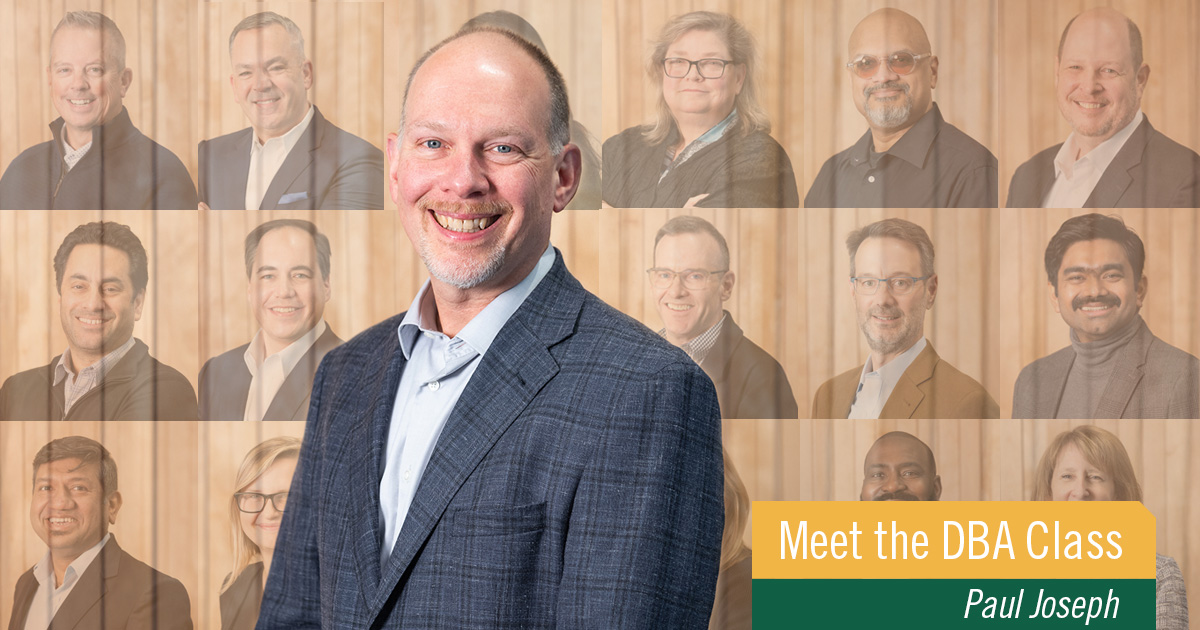An Entrepreneurial Summer: How Babson Impacts Communities Year-Round
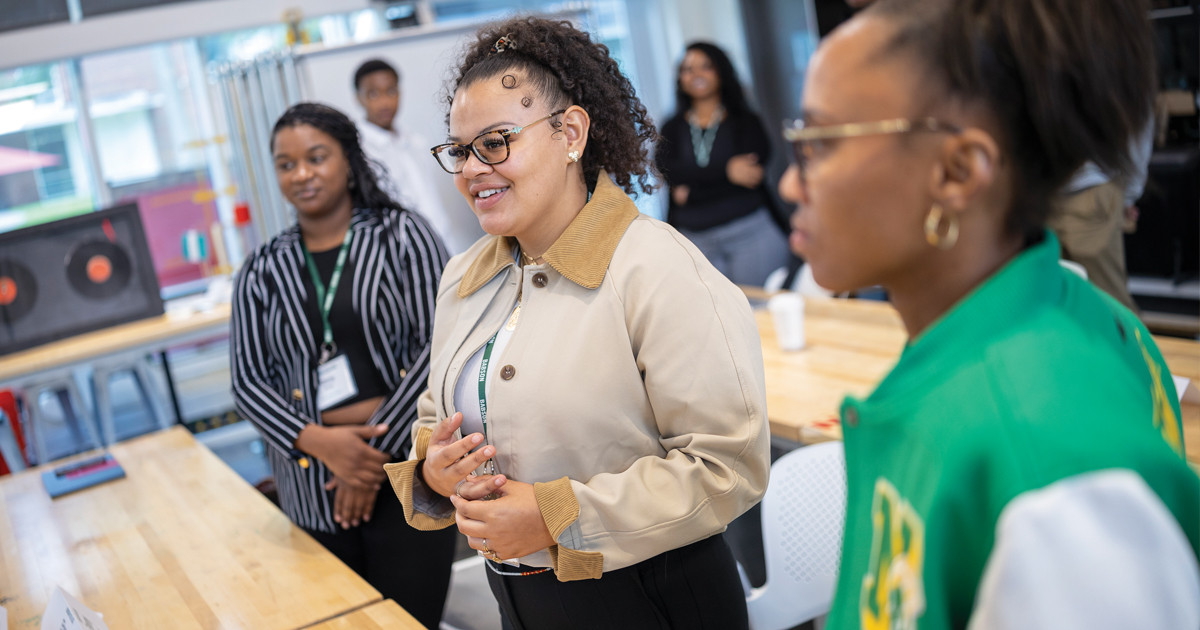
Alicia Anderson spends a lot of time at the sewing machine. She makes all sorts of clothing for her fashion venture, Leeikigai, and she particularly likes to take old pieces and upcycle them, turning them into new creations.
For the senior at Allen University in Columbia, South Carolina, fashion is personal. As someone who felt shy growing up, it helped her to gain confidence. “It really helps you express yourself when you can’t find the words,” Anderson says. Fashion also has grown into a business that’s always top of mind. “I work on it every single day,” she says.
This summer, Anderson came to Babson to learn more about the entrepreneurial mindset in the weeklong Babson Build program. “It is teaching that I have a lot to learn,” she says. Creating a striking dress, she has come to realize, is not enough. She needs to understand marketing, finance, and a host of other things. “I realize I can’t do it on my own,” she says. “I want to make a business. I want to hire people. I need a team.”
BABSON MAGAZINE: Read the complete Summer 2025 issue.
Babson doesn’t rest in the summertime. Yes, the school year may be over, and Commencement’s pomp and circumstance may have come and gone, but the work of educating entrepreneurial leaders continues year-round, whether in Wellesley or around the world.
“We don’t take a break from our mission,” says Babson President Stephen Spinelli Jr. MBA’92, PhD. “The world needs entrepreneurial leaders, and our job is to educate and empower them wherever they may be.”
Anderson is one of many entrepreneurs, educators, and leaders who descend on Babson Park in the summer. From around the globe, they come to connect, and they come to learn. What they take away from the College impacts their companies, their classrooms, and their communities.
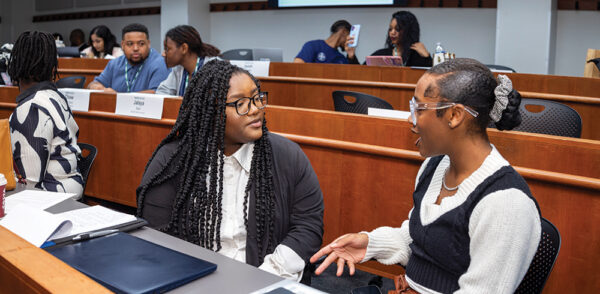
The Entrepreneurs of Babson Build
On a Wednesday evening in June, a group of nearly 40 college students gathers in Babson’s Herring Family Entrepreneurial Leadership Village (HELV). Participants in the Babson Build program, the group comes from 15 Historically Black Colleges and Universities (HBCUs).
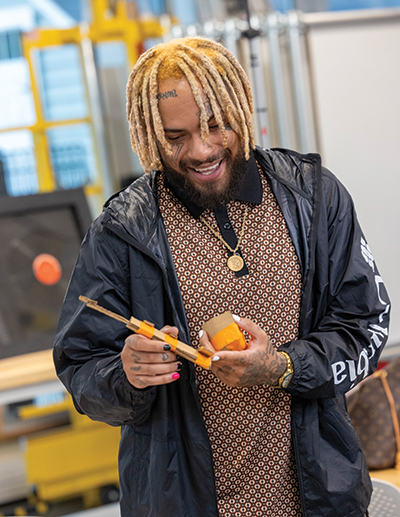
Tailored to college students, Babson Build aims to help them think and act entrepreneurially. “It launches them on their way with an intense Babson experience,” says D. R. Widder MBA’99, the College’s vice president of innovation who oversees the Babson Academy, which runs a variety of online and in-person programs that teach entrepreneurship.
As the HBCU students eat their dinner in the HELV’s Global Outreach Studio, the entrepreneurial spirit fills the room. The students talk of startups, their future plans, and what they’ve learned at Babson. Shawn Chisolm, an Allen University senior, intends to use this new knowledge right away as he’s about to launch a financial consulting firm. “I don’t have to wait,” he says.
With his firm, Chisolm aims to assist clients with retirement plans and college savings. “I like helping people and seeing them happy and taking that stress away from them,” Chisolm says. His father ran his own painting business, so Chisolm had a front-row seat to entrepreneurship growing up. “I got to see the ups and downs. I got to see everything,” he says. “That motivated me to by my own boss.”
Yasmari Rodriguez’s entrepreneurial inspiration comes from the clouds and sky. A sophomore at Elizabeth City State University in North Carolina, she’s working on an AI-powered aviation platform, one that teaches skills to professionals and exposes children to the industry through gameplay. She’s also learning to fly.
“I want to nurture my ambition to make the world a better place through entrepreneurship.”
Jaden Little, a junior at Morehouse College in Atlanta
Rodriguez remembers taking a flight as a child. She sat in the window seat as the sun set. “It allowed me to see the view above the clouds,” she says. “This is the view I’ve wanted to see every day since. This is my motivation.”
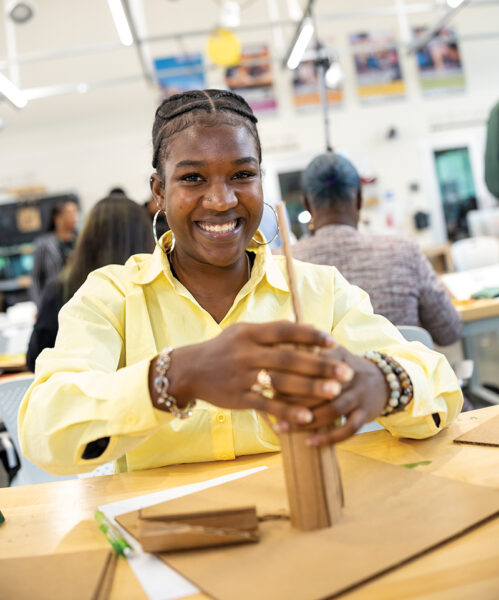
For Siah Hinneh, a senior at Morgan State University in Baltimore, the driving force is justice. More than a decade ago, her Uncle Mike was killed in a tragic homicide, which “changed everything for me,” she says. “I didn’t just want justice for my family. I started thinking about all the other families who don’t have access to the same resources.”
Hinneh plans to go to law school and open a law firm to help under-represented communities have access to affordable legal representation. “I want to start my firm at an earlier age instead of waiting,” she says. “I am already thinking ahead.”
This is the second time that Babson Build has hosted a group of HBCU students. More will follow in the future. “The students bring such energy,” Widder says. “They inspire us with their ambition and ideas.” Jaden Little, a junior at Morehouse College in Atlanta, has found the experience so transformative that he’s thinking of returning to Babson for graduate school. “I want to nurture my ambition to make the world a better place through entrepreneurship,” he says.
As she reflects on the lessons she learned in the program, Jeramyah Adams, a sophomore at Allen University, thinks of the role that pivoting can play. “A lot of entrepreneurs or business owners get stuck sometimes,” says Adams, who wants to start her own management and marketing consulting firm. “You forget you can go a different way and end up in a better spot.”
That strategy, of trying new things, of rolling with challenges, can serve one beyond the world of business. “It feels like a life lesson,” Adams says. “If things aren’t going the way you want them, you can always pivot.”
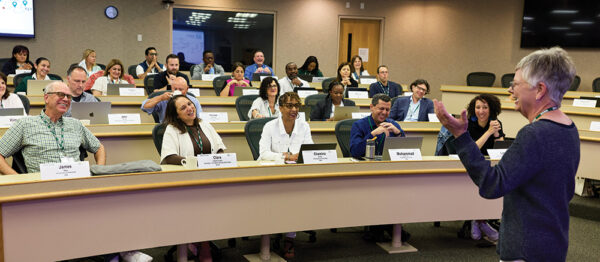
The Educators of SEE
The week after Babson Build, another summer College program is in full swing. In the St. Lawrence room in the Babson Executive Conference Center, participants in the five-day Price-Babson Symposium for Entrepreneurship Educators (SEE) program are coming together for the afternoon. Easel pads are stationed around the spacious room, waiting to be filled with ideas.
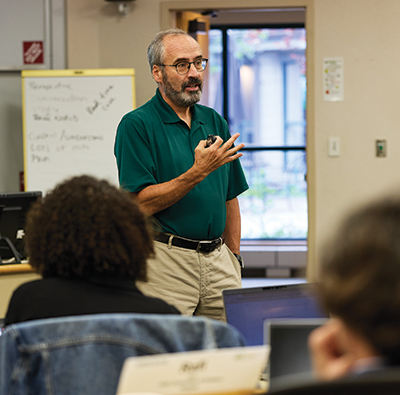
This is the 53rd cohort of the long-running SEE program, which began in 1986 and aims to teach educators how to better teach entrepreneurship. Educators in this summer’s group hail from the U.S. and all over the world. Some have never taught entrepreneurship, while others are seeking to shake up their approach to a subject they’ve taught for years.
“Knowledge should not be stagnant,” says attendee Stephanie Black, an associate professor at Texas A&M University-San Antonio, where she is tasked with developing the school’s entrepreneurship program. “You’ve got to keep learning and be relevant for your students. You have to walk the walk. You have to be a lifelong learner.”
SEE is another program of Babson Academy, of which Heidi Neck is the academic director. When professors teach entrepreneurship, she believes, they should never become too comfortable. “The day we get comfortable teaching entrepreneurship is maybe the day we should move on,” says Neck, the Jeffry A. Timmons Professor of Entrepreneurship. “This practice, this discipline, is always in constant motion. There are always new things to try. If you’re trying to develop the entrepreneurial spirit in your students, you have to have the entrepreneurial spirit in your teaching.”
Babson’s summer programs have an impact far from campus, as participants incorporate the College’s entrepreneurial teaching into their work and lives, and SEE is a stellar example of that. Close to 4,500 educators from more than 750 institutions have attended SEE during its nearly four decades.
“Knowledge should not be stagnant. You’ve got to keep learning and be relevant for your students. You have to walk the walk. You have to be a lifelong learner.”
Stephanie Black, associate professor at Texas A&M University-San Antonio
SEE alumni can have a far-reaching influence. A typical SEE cohort has 50 educators, and on average, they each teach 200 students a year. Add it up, and that’s roughly 10,000 students annually who are taught by just one SEE cohort, a cohort whose way of educating was inspired, challenged, and refined by Babson professors.
John Turner, the director of branding and a designer in residence at the New England Innovation Academy, came to SEE because he needed some assistance. He’s an entrepreneur who has been asked to teach the subject.
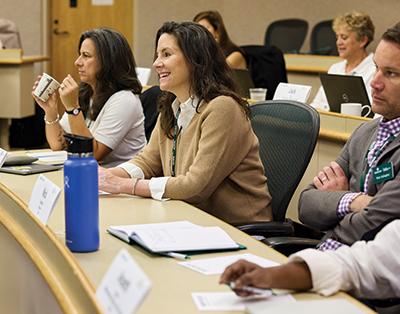
“It is one thing to be an entrepreneur. It is a very different thing to be able to teach it,” Turner says. “I wanted to round out my knowledge built organically over time with a process and a structure that Babson offers.”
Calling SEE an “energizing and inspiring experience,” Muhammad Muhammad teaches several entrepreneurship courses at Texas Tech University. The assistant professor of practice says that the program reminded him how entrepreneurship education should be “dynamic, human-centered, and deeply transformational.”
That transformational aspect is crucial. What is different about teaching entrepreneurship as compared with other subjects, Muhammad says, is that it’s not just about transferring knowledge. It’s about shifting mindsets. “It’s deeply rewarding to watch students evolve—not just into entrepreneurs, but into more empowered, creative versions of themselves,” Muhammad says.
He believes the teaching of entrepreneurship is essential in this era of artificial intelligence, which already is altering the workforce of the future. “For some of our graduating students, entrepreneurship may not be a first choice, but it may be the only viable path to economic self-sufficiency,” he says. “That’s why teaching them how to identify opportunities, navigate uncertainty, and create value is more important than ever.”
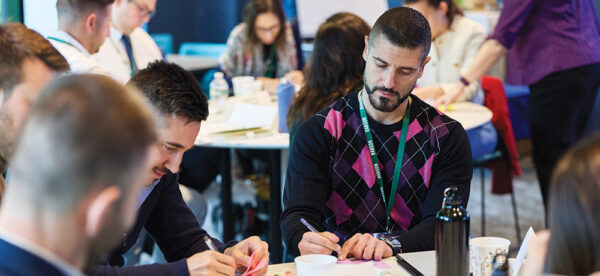
The Leaders of LEAP
The same week as the SEE sessions, another Babson summer program, with an entirely different focus, is taking place. On a Thursday afternoon, just after attending a session on value creation, the participants in the Leadership Education in America Program (LEAP) are taking time for lunch in the Global Outreach Studio. The group of 16 comes from Bulgaria, and Babson staff members have made sure to have an espresso machine on hand for lunch, so the Bulgarians can partake of their preferred caffeinated beverage.
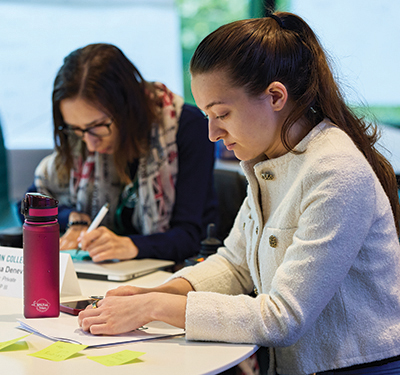
Funded by the America for Bulgaria Foundation, the 17-day program seeks to hone the leadership and entrepreneurship skills of Bulgarian professionals aspiring to make a difference in their communities. To do that, LEAP participants are encouraged to break down the societal barriers that exist in a country where one’s professional networks are often small and isolated. The group is split between those from nongovernmental organizations and the public and private sectors.
“They learn to collaborate among the sectors and among each other,” says Kim Sawyer, special advisor for international corporate strategic engagement at Babson and co-faculty director of LEAP. “To have the biggest impact, you need to have everybody collaborating together.”
Ahmed Mehmedov understands how interconnected Bulgaria’s different sectors are and how needed collaboration is between them. A municipal official, he hopes to build public-private partnerships in rural Bulgaria to foster economic development. “Babson has the know-how to bring sectors together,” he says. “Having this opportunity to have all of us here, we find how we can help each other to make our communities better.”
Kalina Boyadzhieva works for the World Wildlife Fund Bulgaria. “The cause is very important to me,” she says. Like Mehmedov, she knows that complicated societal initiatives, such as the protection of wildlife, require cooperation between people and organizations. “The issue is huge,” she says. “You need allies in that.”
“Having this opportunity to have all of us here, we find how we can help each other to make our communities better.”
Ahmed Mehmedov, municipal official from Sevlievo, Bulgaria
Close to 700 people applied for LEAP, making it a highly competitive program. A director of impact assessment at the America for Bulgaria Foundation, Ivo Bossev is excited about what this group will accomplish in the country. “It is hard to predict what will come of it, this brilliant mix of people,” Bossev says. “What will happen if we leverage all these connections, if you make people collaborate?”
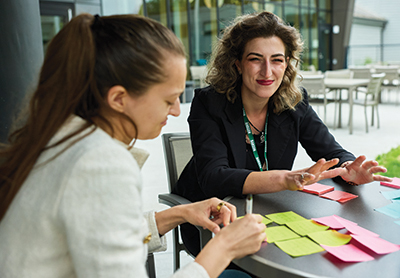
The LEAP participants all have their own goals and dreams for the future, which they hope to achieve through the program’s help. Inna Tsaneva serves as a mayor and wants to be a better communicator, while Petar Dyaksov is a serial entrepreneur who wants to be a better mentor. “I want other people, especially young people, to be a better version of themselves,” Dyaksov says. Petko Ivanov’s focus is on children. He works for Teach for Bulgaria, which aims to provide a quality education for all students. “For me, it is important to have the most impact on children as possible,” Ivanov says.
Dilyana Deneva wants to improve accessibility in Bulgaria. A partner and COO of a marketing agency, Deneva uses a wheelchair after a car accident left her disabled at 18 years old. “I want to be given the opportunity to make value,” she says. “I hate being seen with pity.”
As a whole, LEAP participants envision a thriving Bulgaria, one that is more connected and innovative, more encouraging and empowering. Deneva is inspired by them. “I always dreamed of belonging to a group with the same values and aspirations,” she says. “Here, I see many people wanting to give back to their communities.”
That desire—to give back, to influence, to make change—is ultimately a defining feature of a summer at Babson. “This is what motivates me and drives me,” says Nayden Rashkov, director of Amnesty International in Bulgaria. “It’s how I see my purpose in life.”
No Summer Vacation
Babson’s campuses heat up in the summer with entrepreneurship education for everyone from high school students to undergraduate and graduate students to faculty researchers. Here are some other cornerstone programs offered over the summer:
Summer Session
- What: Babson’s summer session allows undergraduate students to earn up
to 12 credits from an offering of 75 summer courses (in person and online). - When: 10 weeks from May through July
- Who: More than 634 undergraduate students, including 31 who are living on campus, are taking summer courses.
MBA Programs
- What: The F.W. Olin Graduate School of Business at Babson College is a hub of activity, with the One-Year MBA program beginning in May with core courses, and part-time MBA students enrolled in courses.
- When: May through August
- Who: 56 One-Year MBA students and 196 part-time MBA students
Babson Summer Study for High School Students
- What: Summer Study is an experiential program to help high school students develop an entrepreneurial mindset, earn college credits, and gain practical skills on real-world business challenges. This year, the program was available either fully online or in person at the New England Innovation Academy.
- When: Three weeks in July
- Who: 251 rising high school juniors and seniors from 24 countries
Babson Build
- What: An experiential learning program for university students, Babson Build is designed to help entrepreneurs think and act through the Entrepreneurial Thought & Action® methodology, as well as test their insights in business simulations and pitch competitions.
- When: One- or two-week sessions in June and July
- Who: More than 280 program participants from 33 institutions and 19 countries
Summer Venture Program
- What: A signature program presented by the Arthur M. Blank Center for Entrepreneurship, Summer Venture Program is an intensive experience at Babson Boston for participants to build their entrepreneurial skills and accelerate their ventures.
- When: 10 weeks from May through July
- Who: 20 undergraduate and graduate students and recent alumni, representing 14 businesses
Babson College Entrepreneurship Research Program & Conference
- What: Founded by Babson in 1981, BCERC, the premier entrepreneurship research conference in the world, returned to the Wellesley campus for the 45th annual event.
- When: Three days in June
- Who: 291 entrepreneurial scholars from 24 countries gathered together as more than 249 research papers were presented.
Babson Financial Literacy Experience
- What: In partnership with the Babson Financial Literacy Project, this program on the Babson Miami campus teaches high school students how to manage their finances through interactive workshops and real-world case studies.
- When: Two days in June
- Who: 38 high school students, primarily rising juniors and seniors from more than 20 high schools, representing Miami-area, out-of-state, and international schools.


